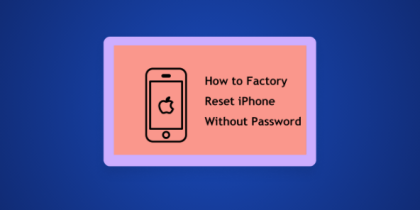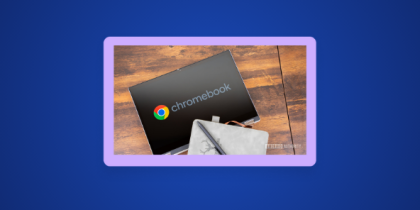As digital surveillance and cyber threats grow more sophisticated, safeguarding your online activity has never been more critical. Apple’s iCloud Private Relay and traditional VPNs both promise to protect your privacy, but they do so in fundamentally different ways.
This article explores iCloud Private Relay and VPNs in depth and provides a clear comparison to determine which solution offers better security.
What is iCloud Private Relay?
iCloud Private Relay is a privacy-focused service introduced by Apple as part of the iCloud+ subscription. It primarily focuses on encrypting your Safari web traffic and hiding your IP address from websites and network providers.
Private Relay routes your requests through two separate internet relays. The first relay, operated by Apple, removes your IP address from the request.
The second relay, operated by a third-party partner, assigns a temporary IP address and forwards your request to the destination website.
Private Relay only protects Safari traffic and does not cover the traffic generated by other apps or system services. While it hides your IP address, it does not allow you to appear as though you are in a different country.
This limitation means you cannot use Private Relay to access geo-restricted content or bypass regional streaming restrictions. Additionally, Private Relay does not provide features such as malware protection or advanced security configurations that some VPNs offer.
What is a VPN?
A VPN, or Virtual Private Network, secures your entire internet connection by routing all traffic from your device through an encrypted tunnel to a VPN server. This process hides your real IP address, encrypts your data, and ensures that your internet service provider, network administrators, or hackers cannot monitor your online activity.
Unlike Private Relay, VPNs protect traffic from all apps and system services on your device. VPNs come with varying levels of encryption protocols, such as OpenVPN, WireGuard, or IKEv2, and often include additional features like malware blocking, ad filtering, and dedicated IP addresses.
What’s the difference between VPN and Private Relay on iPhone?
When comparing VPNs and iCloud Private Relay on an iPhone, the differences become apparent in coverage, functionality, and flexibility. Private Relay only encrypts traffic from Safari and hides your IP address, whereas a VPN encrypts all traffic from the device, including emails, apps, and system services.
VPNs allow you to choose server locations worldwide, which is essential for accessing region-restricted content or avoiding censorship. Private Relay, on the other hand, does not permit changing your apparent location beyond the regional level.
| Feature | iCloud Private Relay | VPN |
|---|---|---|
| Traffic Coverage | Encrypts only Safari traffic | Encrypts all device traffic, including emails, apps, and system services |
| IP Address Masking | Yes, hides your IP | Yes, hides your IP with the option to choose server locations worldwide |
| Encryption | Encrypts Safari traffic only | Uses industry-standard protocols to secure every data packet from your device |
| Location Flexibility | Limited to regional level | Full flexibility to appear in different countries or regions |
| Customization | No additional options | Advanced features like split tunneling, kill switches, and specialized servers |
| Ease of Use | Works automatically once enabled in iCloud settings | Requires app or system setup, though modern VPNs simplify the process |
Privacy and Security: iCloud Private Relay vs VPN
Privacy and security remain the core reasons users opt for either Private Relay or VPNs. Private Relay hides your IP address and encrypts Safari requests, preventing ISPs and websites from seeing your browsing activity.
This setup also limits tracking by advertisers and network administrators. However, Private Relay does not prevent all forms of tracking, such as cookies, device fingerprinting, or data shared with apps outside Safari.
VPNs provide comprehensive privacy by encrypting all internet traffic from your device. This ensures that no third-party observer, including your ISP, can see the websites you visit or the services you use. VPNs also provide stronger anonymity because users can connect through servers in different countries, making it difficult to trace online activity back to an individual.
| Feature | iCloud Private Relay | VPN |
|---|---|---|
| Traffic coverage | Safari only | All apps and system traffic |
| IP masking | Yes | Yes, with selectable location |
| Encryption | Safari traffic encryption | Full-device encryption using industry protocols |
| Geo-restriction bypass | No | Yes, worldwide access |
| Additional security | Limited | Malware protection, DNS leak prevention, kill switch |
| Ease of use | Automatic with iCloud+ | Requires app or system setup |
Performance and Speed Comparison
Performance is another consideration when choosing between Private Relay and a VPN. Private Relay is designed to have minimal impact on browsing speed because it only encrypts Safari traffic. Users generally experience faster page loads compared to using a VPN, especially if the VPN server is far from their physical location.
VPNs can impact speed depending on server distance, server load, and encryption protocol. High-quality VPN services optimize their servers for speed, using modern protocols like WireGuard, which offer fast connections without sacrificing security. Despite potential speed reductions, VPNs provide a significant advantage for privacy and unrestricted internet access, making them suitable for streaming, gaming, and professional work.
Use Cases: When to Use Private Relay vs VPN
Private Relay suits users who primarily browse the web with Safari and want to prevent ISPs and advertisers from tracking their online activity. It is particularly useful for casual users who value simplicity and seamless privacy integration into Apple’s ecosystem. Private Relay is also ideal for users who do not need to access geo-restricted content or secure traffic from all apps.
VPNs are better suited for users who require complete online privacy and need to protect all internet traffic from their devices. Travelers who want to access restricted content, employees working remotely on sensitive projects, or anyone using public Wi-Fi for banking or communication should rely on VPNs for comprehensive security.
What’s the difference between VPN and Private Relay on iPhone?
For iPhone users, the distinction between VPNs and Private Relay revolves around coverage and control. Private Relay protects only Safari browsing, while VPNs secure all device traffic. VPNs allow users to select server locations globally, offering privacy and access to region-restricted content. Private Relay works automatically with minimal configuration but provides limited privacy compared to a full VPN.
Cost and Availability
iCloud Private Relay is included with an iCloud+ subscription, which ranges in cost depending on storage plans. Users do not need to pay extra for Private Relay beyond their existing iCloud subscription. VPN services vary in cost, with free options offering limited bandwidth or server locations and premium services providing faster speeds, advanced security, and dedicated IP addresses.
Final Verdict: Which Is Better for Security?
When determining which solution is better for security, VPNs clearly have the advantage for comprehensive protection. They encrypt all internet traffic, prevent tracking across apps and websites, provide access to geo-restricted content, and offer additional security features. Private Relay enhances privacy for Safari users and limits tracking but falls short of full-device protection.
What’s the difference between VPN and Private Relay on iPhone?
To summarize for iPhone users, Private Relay encrypts only Safari traffic and hides your IP address, while VPNs encrypt all device traffic and offer flexible server locations. VPNs provide robust privacy, advanced security features, and global access, making them more suitable for users who handle sensitive data or frequently access restricted content.
Conclusion
Both iCloud Private Relay and VPNs serve the purpose of enhancing privacy and security online, but they cater to different user needs. Private Relay integrates seamlessly with Safari and Apple devices, offering convenience and basic privacy protection. VPNs, on the other hand, deliver comprehensive security, encryption, and freedom online.








